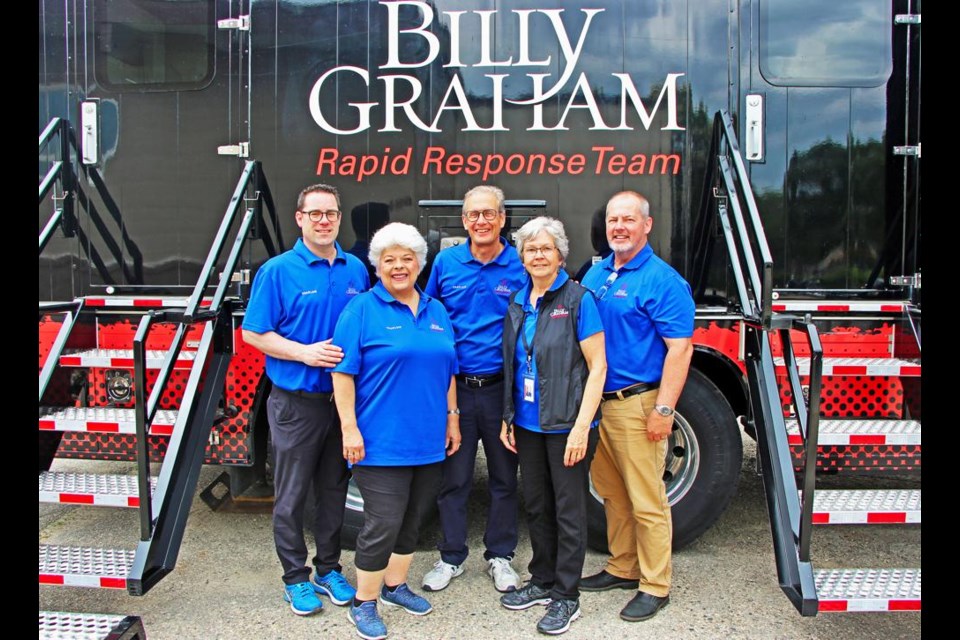WEYBURN – Weyburn pastor Tim MacKinnon, of the Calvary Baptist Church, received a call from the Billy Graham Rapid Response Team, to be part of the team that travelled to Dauphin, Man., to help counsel people impacted by the tragic bus crash of June 15 that killed 16 people.
He and three others spent a week in the Manitoba town, as they made themselves available to anyone who wanted to talk or to pray.
The bus of seniors, heading out for a day at a casino, was hit by a semi truck at an intersection near Carberry on June 15. Fifteen people were killed initially at the crash, and one person died of their injuries later, with a number of people still in hospital recovering.
MacKinnon has been a volunteer with the team for the past eight years, and has taken critical incident stress management training, along with courses as he has served as chaplain to the Weyburn Fire Department and Weyburn Police Service.
“When this incident came up, they specifically called me because of my proximity to Dauphin,” said MacKinnon, and because he serves as a pastor, and they relied on his experience in helping and talking to people.
MacKinnon talked to his church board, and they gave him their blessing to go with the team. The Rapid Response team set up a mobile unit in the town, and people came to them to talk and to pray.
He left right after his church service on June 18, and was in Dauphin until June 24.
“People would literally just show up, and we talked with them and prayed with them,” he said, noting they also met with the local ministerial association, and paid a visit to the RCMP and fire department.
“The City of Dauphin has asked the ministerial to put together a vigil service for the community. The pastors each shared how the experience affected some of these people,” he said, noting the victims were mainly Ukrainian Catholic or Ukrainian Orthodox.
As they were seniors, they were grandparents and parents to many residents of the community, and the tragedy had a deep impact on the region, he said.
“The benefit is, we came and people knew who we were and who we represented. Sometimes people wanted to talk to someone they didn’t know. … We found people were very responsive and would open up to someone who wasn’t from the community,” said MacKinnon. “We were busy the moment we got there.”
“One lady said she lost her best friend in that accident. Another lady showed up at the mobile centre with a prescription to come talk to us,” said MacKinnon, chuckling. “I had never seen that before.”
The response team attended the community vigil that was held, and noted it was a very emotional service.
The night before they were to leave, the team held a training session for anyone in the community who wanted, and around 75 people showed up.
“We talked about the nature of trauma, and how people respond differently, and what they should say and what not to say,” he said.
Even on the day they were packing up to leave, a man came to talk who worked in the dietary section of a long-term care home. He knew every single one of the people who died, and needed to talk about the loss.
Throughout his time in Dauphin, MacKinnon said they could feel the weight of grief and shock throughout the community, and many people were impacted even if they had no relations with any of the victims.
Those who came to the mobile centre ranged all walks of life, from professionals to street people, and they even ended up feeding some of the homeless people who came to them hungry.
“It felt very God-ordained to be there,” said MacKinnon, noting they began each day with the prayer that the right people who needed help would come to them.
The Rapid Response Team was born out of the tragedy of 9/11, and they have responded to numerous major traumatic events around the world since they formed. MacKinnon said he felt they did a lot of good in the week there, and he would go again if he is called by the Billy Graham organization.




